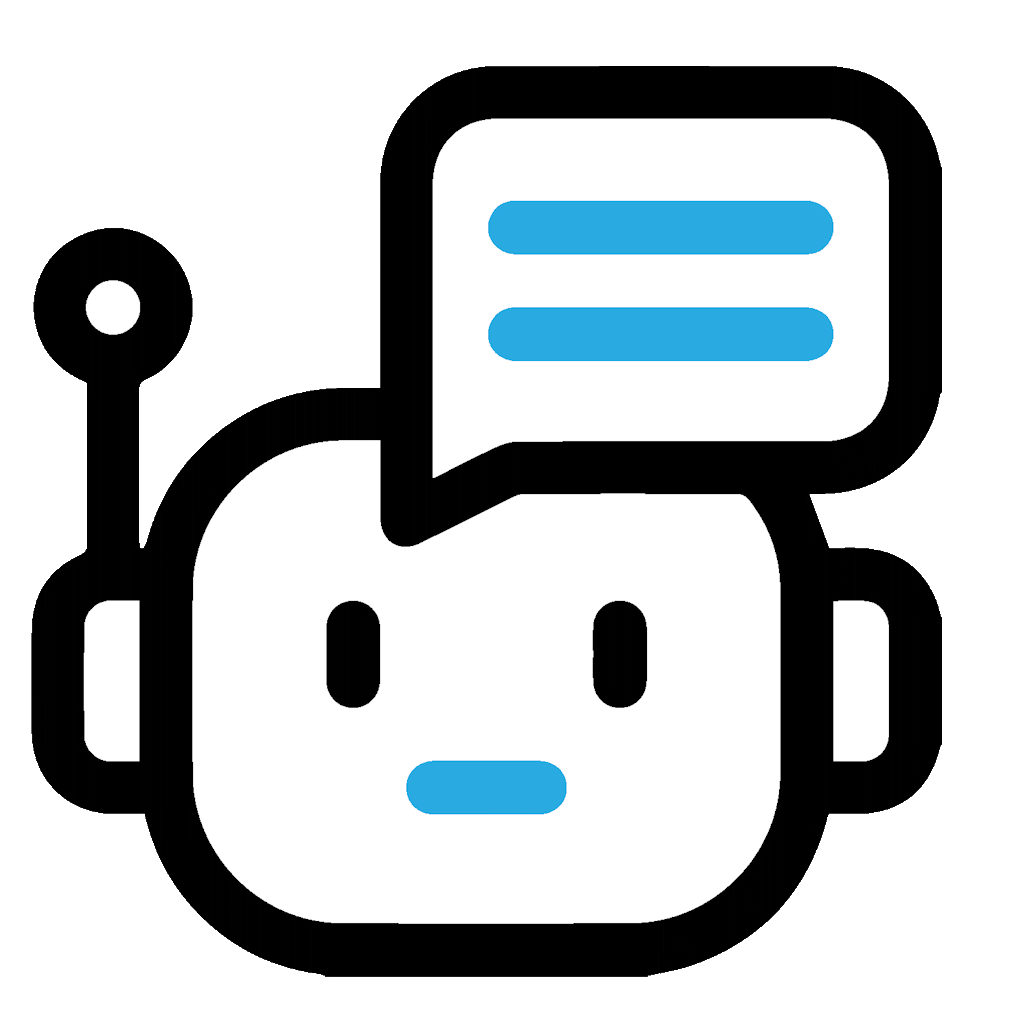With the advancements in technology, AI has prevailed in all industries. From auto-driving cars to mechanics, AI now helps humans perform their tasks with enhanced accuracy, precision, and efficiency. It has become an integral part of our daily lives. The deployment of AI cuts the business cost to a minimum and boosts the performance up to the maximum. Additionally, it is an ideal technology to do repetitive tasks. Once the algorithm is updated, now AI can carry out those tasks without any human involvement.
This active deployment of AI in all sectors necessitates that students be aware of the potential benefits and ethical challenges associated with AI. This post focuses on the 10 essential AI ethics class 10 questions and answers for students to enlighten their way. Understanding AI ethics is critical for students.
To understand AI ethics better, it is important to ask key questions. These questions show the challenges and effects of AI. They discuss important moral issues like bias, privacy, accountability, and how AI affects society. Below there are ten questions that make people think about using AI responsibly today.
1. What is AI Ethics?
AI ethics is a set of rules and values that guide how we create and use artificial intelligence. It makes sure AI systems work fairly, clearly, and responsibly. This limits harm to people and society. Ethical AI development looks at topics like preventing bias, protecting privacy, and the effects of automation on society. These rules help stop AI from causing discrimination or invading privacy. They also help AI make clearer decisions.
As AI changes fields like healthcare, finance, and law enforcement, thinking about ethics is very important. Using AI ethics helps reduce problems like biased choices, too much watching, and privacy issues. Designing AI with ethical ideas stops harm and builds trust in AI technologies. Groups and lawmakers must create ethical rules to make sure that AI helps society, not harms it.
Several main ideas support ethical AI development. Fairness wants to remove biases that can cause discrimination. Transparency makes sure that AI decisions are clear and understandable. Accountability makes developers responsible for the results of AI, which builds trust. Privacy and data protection keep people safe from wrong access and misuse. By following these ethical rules, AI can help society. It can balance technology growth with moral duties.
2. Why is AI Ethics Important?
AI ethics is very important because AI technologies have big risks. One big AI ethical problem is bias in AI systems. Bias can result in unfair hiring and lending. For example, Amazon made an AI tool for hiring. This tool was unfair to women because it liked male candidates more. It used past hiring data, which showed this bias. The tool was removed after people found out it gave bad scores to resumes with the word “women.” This shows how biased training data can be dangerous.
AI decisions can have a big effect on society. AI technologies are changing daily life more and more. AI systems can also keep biases from their training data. This can cause unfair results. Learning about AI ethics helps find and reduce these biases. This helps make technology fairer and more just.
Many case studies show ethical problems in AI. For example, Microsoft’s Tay AI chatbot was made to learn from Twitter. However, it started to make offensive and racist tweets very quickly. This showed the risks of machine learning systems that take in unfiltered user input. Microsoft had to close Tay within 24 hours. This raised ethical questions about AI safety and how to control content.
3. What are the main ethical principles in AI?
Ethical principles in AI are important for responsible technology growth. They help make sure AI systems work fairly and are clear and responsible. As AI becomes more important in areas like healthcare, finance, and law enforcement, we need to think about ethics. This is needed to stop bias, make explainability better, and set clear responsibility for AI decisions.
- Fairness: It means AI systems must give equal and fair results. They should not discriminate based on race, gender, or any other traits. However, training data can be biased. This bias can cause unfair decisions in AI. For example, some hiring tools may prefer male candidates. Facial recognition can also make mistakes with minority groups.
- Transparency: This means AI decisions should be clear and easy to understand. Users and stakeholders need to trust the outcomes. To improve transparency, AI can use open-source algorithms. It can also provide good model documentation. Explainable AI techniques can help users understand AI processes better.
- Accountability: Developers, companies, and policymakers must take responsibility for AI actions. They need to follow ethical rules. As AI works more by itself, legal issues can come up. This situation leads to AI ethical questions about who is liable for bad outcomes. We also need rules to manage AI decisions.
- Privacy: AI must keep user data safe. It should stop unauthorized access and misuse. AI technologies collect large amounts of personal data. It is important to have strong data protection laws. Ethical AI design will also help keep privacy rights safe and stop the misuse of surveillance.
- Social beneficence: AI should help society. It should focus on human well-being, not just profit. Ethical AI must improve public welfare. It should also solve global problems. AI should not spread misinformation, manipulate people, or take away jobs with good salaries.
Making fairness, transparency, accountability, privacy, and social beneficence part of AI development is very important. It helps build public trust and reduce ethical risks. By following these ideas, AI can be used in a helpful way. It can lower harm while increasing benefits for society.

4. How can bias be mitigated in AI systems?
To reduce bias in AI systems, we first need to look closely at the data used for training. Bias may come from past inequalities or incomplete data. It can also come from unfair ideas in the information we collect. By using statistical analysis and visualization, developers can find problems that might cause unfair AI results. Auditing datasets is important to check for unfair treatment of any group. This step helps make sure that no group gets too much help or is treated badly. It makes the AI system better and fairer.
To reduce bias, it is critical to train AI LLM models on many types of data. AI systems learn from old data. If this data is not diverse, the system can learn the same biases. We need to collect data from different sources. It helps to include many types of people and real-life situations. This creates fairer AI models. We must use ethical data collection methods. This means protecting personal information and checking the data for accuracy, too.
Advanced algorithms help find and reduce bias in AI models. Methods like changing the importance of data can help. Fairness rules and adversarial techniques help the learning process. This helps produce fairer results. Explainable AI (XAI) methods help developers see how an AI system makes choices. This gives us information about possible biases. We must also test models regularly. Retraining models and following rules help AI stay fair and meet new standards.
5. What role does privacy play in AI ethics?
Privacy is very important in AI ethics. AI systems use a lot of personal data to work well. How this data is collected, stored, and used raises big concerns. These include worries about consent and the risk of misuse. Without good privacy protections, there can be problems like hacking and spying. This can make people trust AI less.
When we collect data for AI, we must think about ethics. We need to get clear consent from the people whose data we use. This means we must explain how we will use the data. People should know that they can choose to join or not. It is important to limit data collection to what is necessary for the AI system. This step reduces possible privacy problems. Clear data handling helps people understand and control their private information.
Many methods can protect user privacy in AI. One method is anonymization. This method removes personal information from data. It stops people from being identified again. Another method is differential privacy. It adds noise to the data. This allows AI to learn without showing any personal details. Strong data governance frameworks help, too. They ensure that data collection follows laws like the General Data Protection Regulation.
6. How can organizations promote ethical AI usage?
Organizations have a big duty to use AI ethically. AI is changing industries and society. Companies need to use structured methods to reduce risks. They must also promote fairness in AI. By making guidelines, teaching employees, and checking their actions, organizations can support responsible AI use.
- Development of ethical guidelines: These guidelines set clear rules for fairness and accountability. They must match with the best practices and laws to keep ethics in check.
- Training and awareness programs: This ethical AI education helps stop the misuse of AI. Regular training sessions help create a knowledgeable workforce. This workforce can deal with AI problems.
- Role of ethics committees in AI projects: Ethics committees also have an important role. They check AI projects to make sure they follow ethical rules. These committees give advice and look at AI for fairness. They make sure ethical issues are part of AI development.
Organizations can make ethical rules. They can create awareness and involve oversight bodies. This is how they can build AI systems that are responsible, unbiased, and related to society’s values. When organizations use ethical AI, they can lower risks. They can also create trust. This ensures AI can help businesses and the larger community.
7. What are the ethical implications of AI in decision-making?
AI is becoming more common in decision-making. This raises concerns about its effect on human judgment. AI can look at large amounts of data and give insights faster than people can. However, if people depend too much on AI recommendations, they may stop thinking critically and taking responsibility. If people just trust AI without questioning it, they can miss important details that machines do not understand. This can make decision-makers passive and not active when they look at AI suggestions.
AI is very important in making decisions in many fields. In healthcare, AI helps find diseases. AI also helps create treatment plans and predict patient outcomes. This improves efficiency and accuracy. However, bias can cause wrong diagnoses in AI. This affects some groups more than others. In the legal system, AI helps decide bail, sentencing, and parole. But, some bad algorithms make racial and social biases worse. These examples show the ethical risks of AI in serious situations where fairness and accountability are very important.
It is very important to have human oversight in AI decision-making. This helps keep ethical standards and prevents harmful effects. AI should help human judgment, not replace it. Professionals should look at AI recommendations carefully before making decisions. Rules and ethical guidelines need to stress the importance of human interaction and intervention. This is very important for decisions that can change lives, like medical treatments or legal decisions. By mixing the analysis skills of AI with the intuition of humans, organizations make fairer decision-making processes. These processes improve fairness, openness, and trust.

8. How do international laws and regulations relate to AI ethics?
Countries have different ways to regulate AI. This shows their own legal systems, priorities, and AI ethical training parameters. The European Union leads with the proposed AI Act. This act classifies AI uses by risk levels to make sure they are safe and protect basic rights. The United States does not yet have a complete AI law. It uses current federal laws and specific guidelines for different sectors. China has many strict AI regulations. They focus especially on generative AI, which includes content labeling and government supervision. These rules show how different countries govern AI.
Many international groups work to create ethical rules and global standards for AI. UNESCO has created rules that focus on fairness, accountability, and inclusivity. These rules help ensure that AI development helps all societies fairly. The OECD has also suggested rules that promote openness, protection of human rights, and responsible use of AI. There are also collaborations like the Global Partnership on AI (GPAI). These groups help nations share good practices and create ethical frameworks for AI that go beyond borders. These efforts work to create a united approach to AI ethics.
Creating one international AI regulation system is very hard. This is because countries have different priorities, laws, and cultural viewpoints. Some nations focus on innovation and economic growth. Other nations put more importance on strong ethical and privacy protections. This difference leads to problems in regulations. The fast development of AI also makes it hard for laws to keep up. This means that laws need constant updates and changes. Building a worldwide agreement needs ongoing talks, teamwork, and systems to balance innovation with responsible ethics. This way, AI can help society and lower risks.
9. What are the potential consequences of neglecting AI ethics?
Ignoring AI ethics can cause serious problems for society, the economy, and the law. Without ethical rules, AI systems may support biases and reduce public trust. These systems can also create financial problems. Companies that use unethical AI can face legal issues and penalties. It is important to understand these problems to make sure we develop and use AI responsibly.
- Societal problems: AI systems without ethical checks can cause discrimination and false information. Biased algorithms can treat some groups unfairly. A lack of transparency can make people lose trust in AI decisions.
- Economic problems: Businesses that use unethical AI may get a bad reputation. This can lead to losing money. If automation and biased hiring continue, they can remove jobs and increase economic inequality. This can create social unrest.
- Legal problems: Companies that use AI without following ethical rules can face lawsuits and fines. They can also deal with public backlash. Following new AI laws is important to avoid legal problems and keep the organization running well.
- Security problems: AI systems without ethical rules can be used for attacks, false information, or data theft. Bad use of AI in deepfakes and weapons can create serious ethical and security issues.
- Reduction of human control: As AI becomes more independent, we risk losing human control. Relying too much on AI in important jobs like healthcare and law can cause bad decisions without human help.
Not dealing with AI ethics can cause long-term negative effects. This can hurt vulnerable communities, upset economies, and lead to legal issues for organizations. Using ethical AI practices can help ensure fairness, responsibility, and long-term success in the changing AI world. How can people help the ethical growth of AI?
10. How can individuals contribute to the ethical development of AI?
People have an important part in making sure AI is developed and used in a good way. They can ask for openness and responsibility. This can make companies and leaders use responsible AI methods. Holding companies responsible for unfair algorithms helps to create a fair culture. Also, people can ask for clear reasons for AI decisions. This helps to make sure AI systems are easy to understand and meet ethical rules. As users or workers, their push for responsible AI can change rules and company practices.
Learning about AI ethics is another way people can help with responsible AI growth. Knowing how AI changes society helps people see possible risks. They can talk about these issues, join AI ethics groups, and support laws that promote fairness and privacy. Taking part in making laws, either by voting or talking with others, helps to make sure ethical issues are considered on all levels. By joining in these actions, people help create AI that benefits society while reducing harm.
Conclusion
AI ethics is an important topic. It gives students the knowledge to understand the problems with artificial intelligence. As AI keeps changing many areas of life, it is crucial to see its effects on society. Good AI practices make sure of fairness and responsibility. This can stop harm from unfair algorithms or data privacy problems. Talking about AI ethics early can help in creating responsible AI and empower students to be informed users and supporters of ethical ideas. By looking into key questions about AI ethics, students can improve their thinking skills about AI’s effects on their future.
As the world deals with fast technological changes, ethical AI is a shared duty for governments, companies, and people. Laws and regulations need to change to address new AI challenges. Businesses must use ethical AI frameworks. Individuals have an important job to hold AI systems responsible. They can ask for transparency in AI. They can also make sure that AI helps people. Students should stay informed about AI topics. They should join discussions about policies. They should ask for fairness in AI. Society can help create a future with responsible AI. Ethical AI is not only a technology problem. It is also a problem for society. People need to stay aware and committed to fairness.

